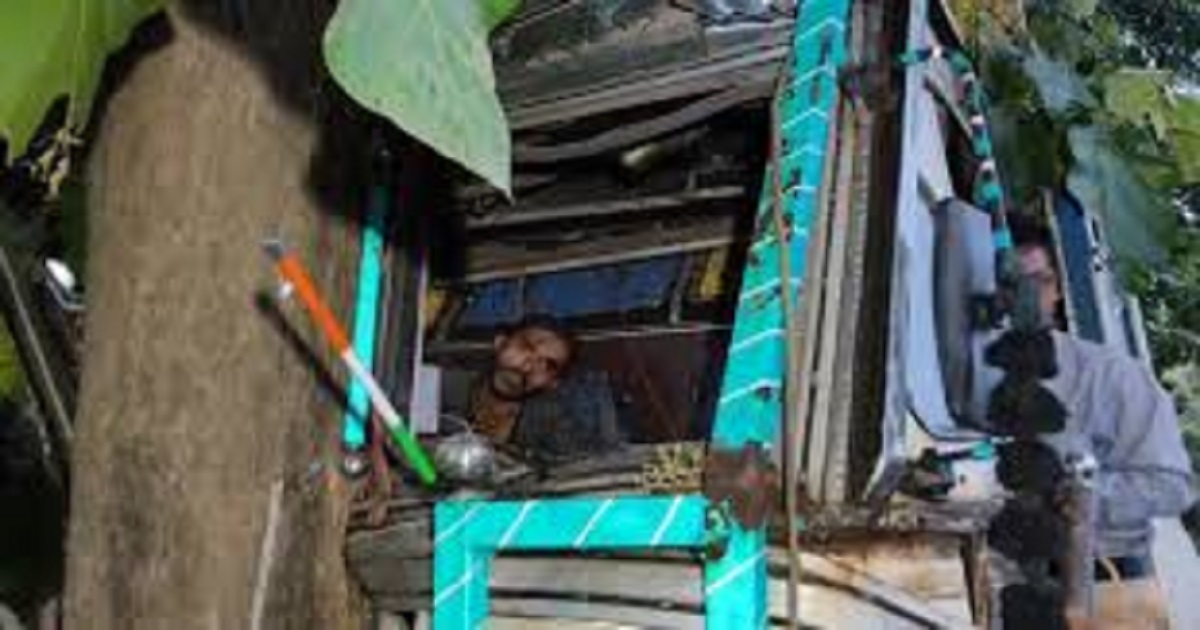The Naked Truth: Bureaucratic Cowardice Exposed by the Death of Mihir Lal Debnath!!!
Biswanath Bhattacharya
August 10, 2025

On August 5, 2025, in Chakmaghat, Teliamura, the world bore witness to a tragedy that was as much an indictment of our disaster management apparatus as it was a personal catastrophe. Mihir Lal Debnath did not die because of a truck accident—he died because the system, tasked with saving him, chose paralysis over action, silence over urgency, and self-preservation over duty.
For seven excruciating hours, Mihir lay trapped in the open, his pleas echoing across social media, while the so-called machinery of disaster response idled in its bureaucratic torpor. The images and sounds of his final hours are not just haunting—they are damning. They lay bare the wretched inefficiency and callous disregard that have calcified within the Disaster Management Department. It is a department that, for all its grand titles and paper protocols, now stands naked—stripped of any legitimacy or competence in the eyes of a justly outraged public.
Much has been made of the suspension of Sri Parimal Majumder, TCS Gr-I, Subdivisional Magistrate of Teliamura. But let us not mistake this token gesture for true accountability. It is a jerk reaction, a feeble attempt to placate public anger by offering up a convenient scapegoat. Meanwhile, the real architects of this tragedy remain untouched. Where is the reckoning for the District Magistrate & Collector, Khowai? For the Superintendent of Police, Khowai? For the Subdivisional Officer (Fire), Teliamura? For the Divisional Forest Officer, Khowai? Why do their heads not roll when their collective inaction cemented Mihir’s fate beneath the twisted steel? Is a namesake show cause notice all that our conscience can muster?
This was not the failure of a single individual or a lone oversight. It was a systemic rot, a moral collapse, a demonstration of cowardice that stretched from the lowest field officer to the highest echelons of the district administration. Tripura, which styles itself as a modern, progressive state, could not find a single iron cutter, a hydraulic jack, or an oxygen cylinder in time to save a life. The vaunted Disaster Management Department, fattened on years of budgets and promises, was exposed as a hollow shell, its authority now shamed and its purpose brought into question.
Look back over the past decade, and Mihir’s story is revealed not as an anomaly, but as a symptom of a chronic disease. Road accidents have claimed more lives than the darkest days of insurgency ever did, and yet the officials responsible for maintaining public safety find comfort in their inertia. Their positions are preserved; their power remains unchallenged. The price, as we have seen, is paid in blood—and, in this case, the life of a man abandoned in plain sight.
The death of Mihir Lal Debnath is a mirror held up to the red-faced incompetence of Tripura’s governance. It reflects an image of apathy, of self-serving bureaucracy, of a total absence of accountability. Only the most deluded would call the suspension of one SDM “justice.” It is nothing more than a fig leaf, an obscene attempt to mask the nakedness of an administration that has neither the will nor the capacity to protect its own people.
This moment demands more than another layer of paperwork or a new set of dusty directives. It calls for the immediate creation of permanent, properly equipped rescue units in every corner of the state, for seamless cooperation between agencies, for real-time digital monitoring, and for a reckoning—one that does not stop at the scapegoating of the powerless. It demands that the feudal comfort of higher officials be shattered, their failures exposed, and their positions held to account.
Mihir did not die because his fate was inevitable. He died because the system engineered his death by delay, by indifference, and by its obsession with protocol over people. If there is any justice left in Tripura, this moment must be the catalyst for real, radical reform. Anything less would be a betrayal not only of Mihir, but of every citizen who might one day find themselves at the mercy of a system that has learned nothing and changed nothing.
Let this be a call to arms—not just for the bereaved, but for all who still believe that the machinery of public service exists to serve the public, not to shield the incompetent. Demand answers. Demand accountability. Demand that the rot be cut out, root and branch, before another citizen is left to die in the shadow of an indifferent state.
(Tripurainfo)
more articles...